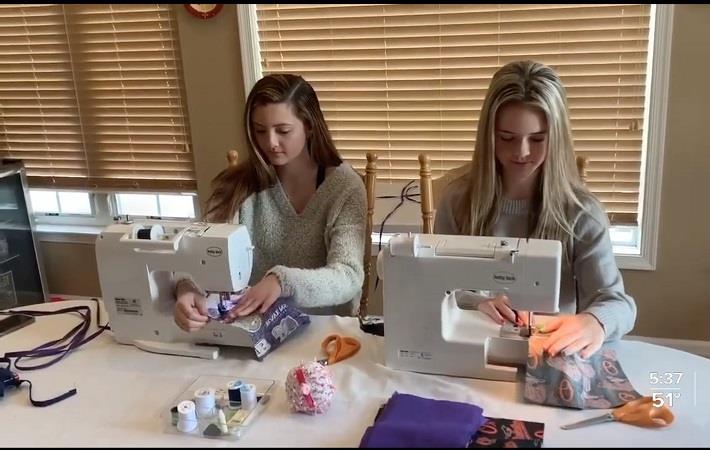NewsWrap '20 – Select 10: Face masks

The Masks Now Coalition, a coalition of volunteers and groups, announced in April their first mask design that is fully compliant with all CDC (Centers for Disease Control and Prevention) guidelines for people who can sew, and those who can’t. The Masks Now Coalition is an unprecedented grassroots effort to recruit sewists and the non-sewists alike to make masks. This coalition also distributes the masks to the facilities who need them like retirement homes, prisons, hospitals, banks, grocery stores, and other essential businesses.
Canadian researchers develop biodegradable medical mask
Researchers in the BioProducts Institute at the University of British Columbia (UBC) designed what could be the very first N95 mask sourced and made entirely in Canada. It is also possibly the world’s first fully compostable and biodegradable medical mask. Made in Canada design uses local wood fibres and can be produced in British Columbia. The new mask—dubbed Canadian-Mask, or Can-Mask—ticks all those boxes, says Foster, who’s also the Natural Sciences and Engineering Research Council of Canada (NSERC) Canfor Industrial Research Chair in Advanced Bioproducts at UBC.
Cotton and silk masks found effective by US’ scientists
Wise Protec launches face mask that destroys coronavirus
US team develops face mask with cotton nonwoven filter
Georgia Institute’s team develops new reusable face mask
Korean team develops reusable nano-filtered face mask
Arvind, ACT Grants to produce 3 crore masks in 12 months
Neck gaiters effective as masks: Georgia University
Most fabrics effective for face masks: Cambridge study
Most fabrics commonly used for non-clinical face masks filter ultrafine particles, a team of scientists from the University of Cambridge and the Northwestern University, reported. The team tested everything from t-shirts and socks to jeans and vacuum bags to know what material is most effective at trapping particles that may have viruses such as SARS-CoV-2. The researchers tested the effectiveness of different fabrics at filtering particles between 0.02 and 0.1 micrometres – about the size of most viruses – at high speeds, comparable to coughing or heavy breathing. They also tested N95 and surgical masks, which are more commonly used in healthcare settings.
To read more subscribe to January 2021 edition of Fibre2Fashion.
For queries & brickbats, write to: richabansal@fibre2fashion.com
Fibre2Fashion News Desk (RKS)
































-Ltd..jpg?tr=w-120,h-60,c-at_max,cm-pad_resize,bg-ffffff)





.jpg?tr=w-120,h-60,c-at_max,cm-pad_resize,bg-ffffff)
.jpg?tr=w-120,h-60,c-at_max,cm-pad_resize,bg-ffffff)






